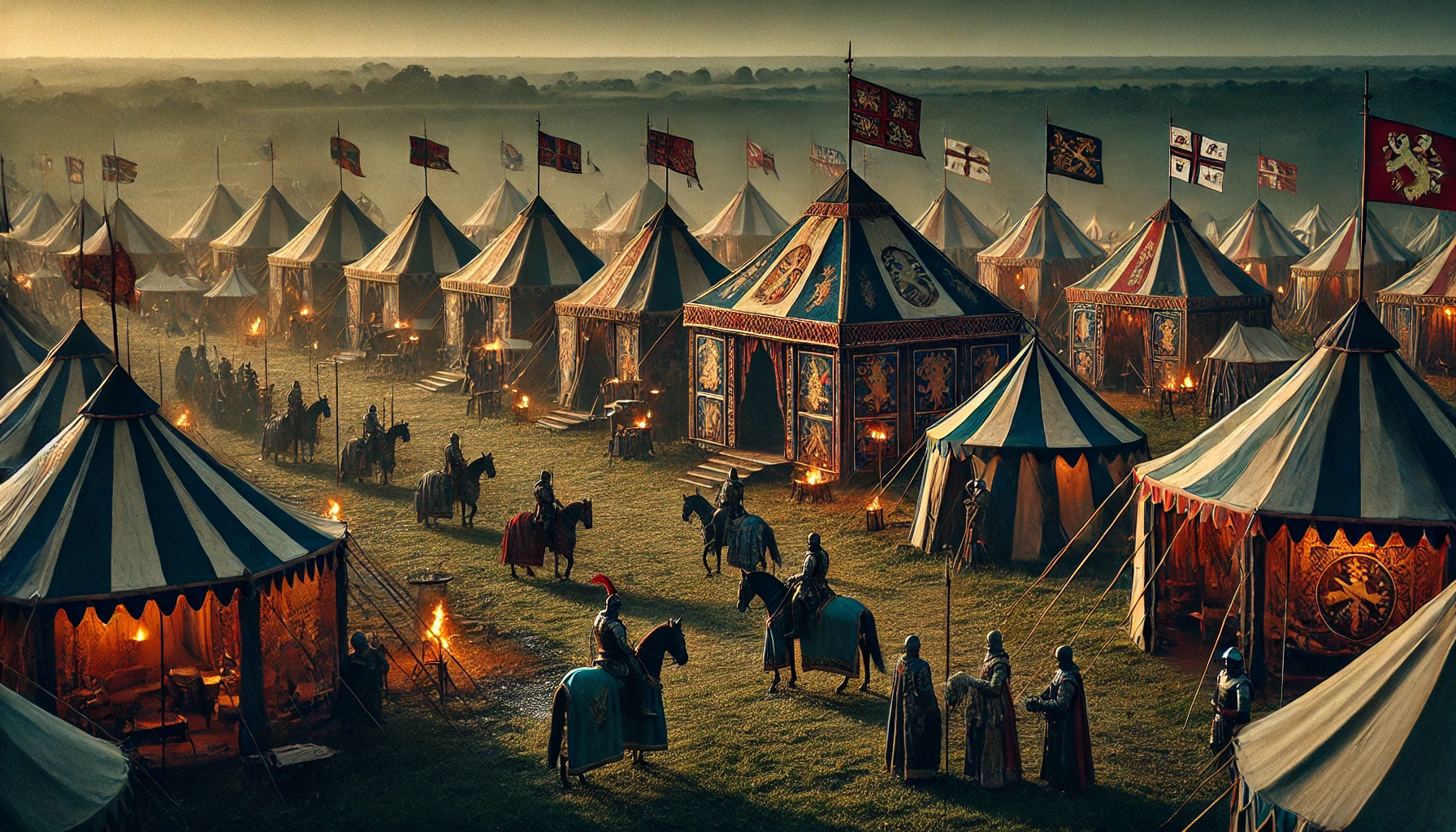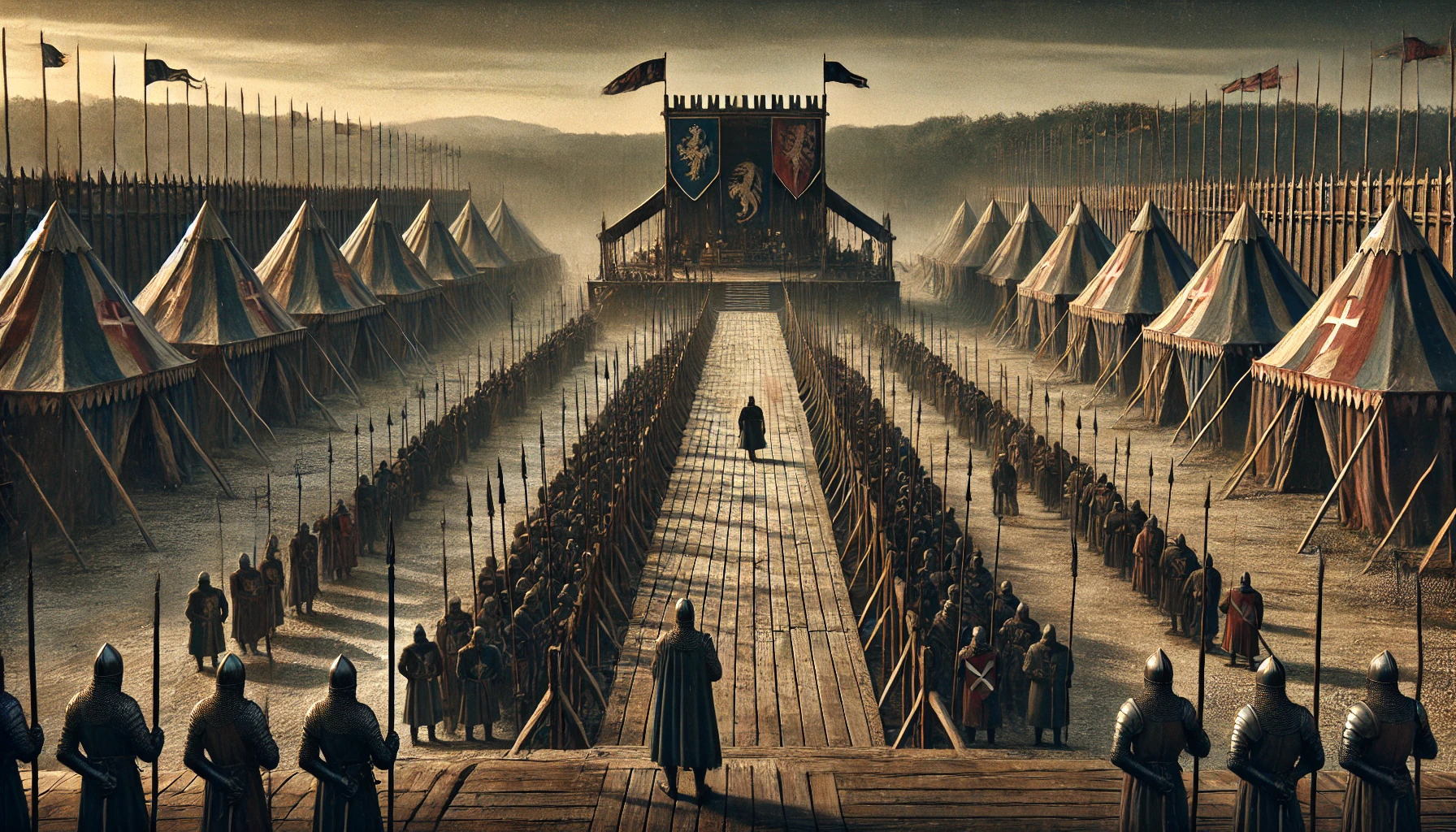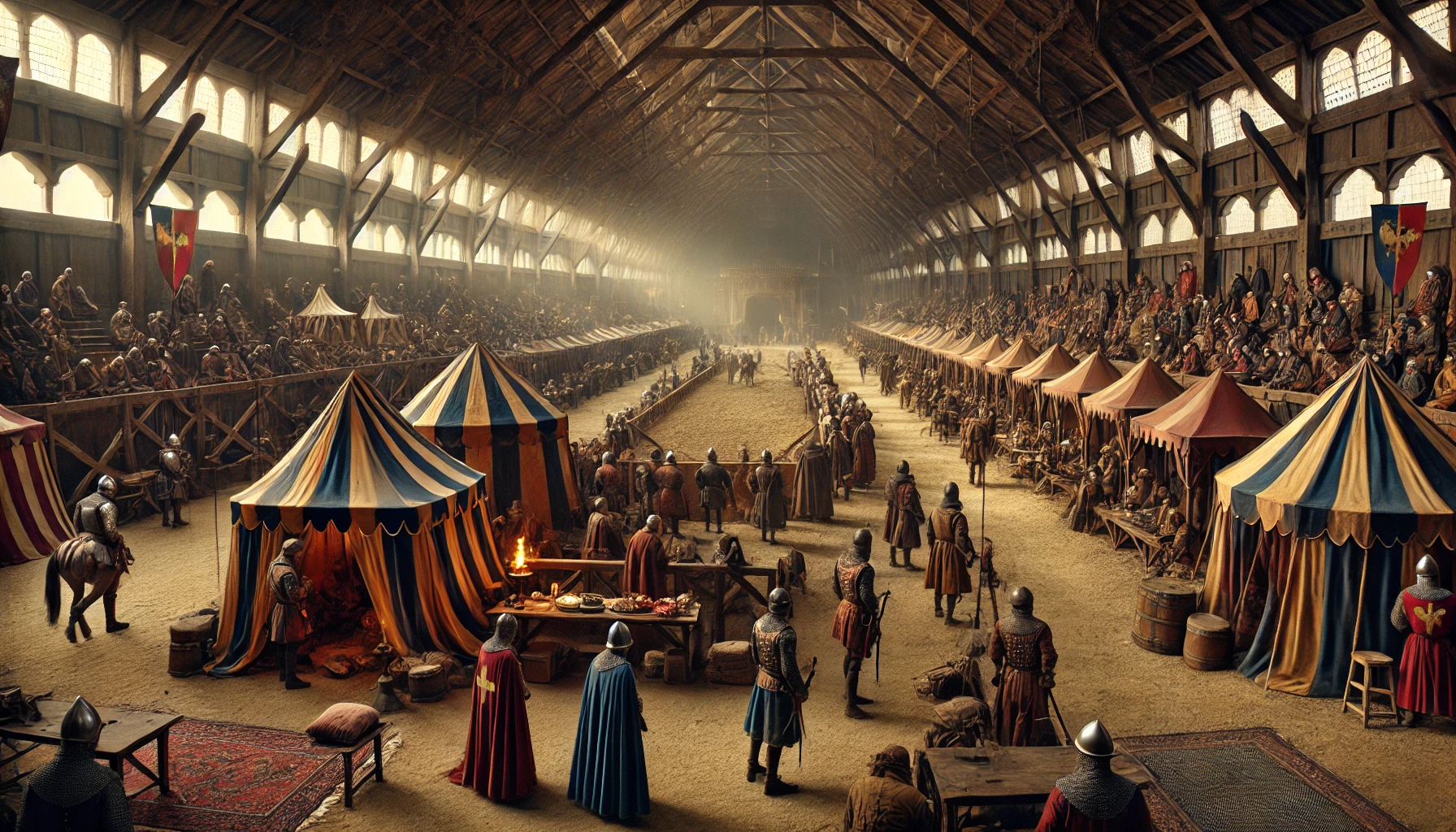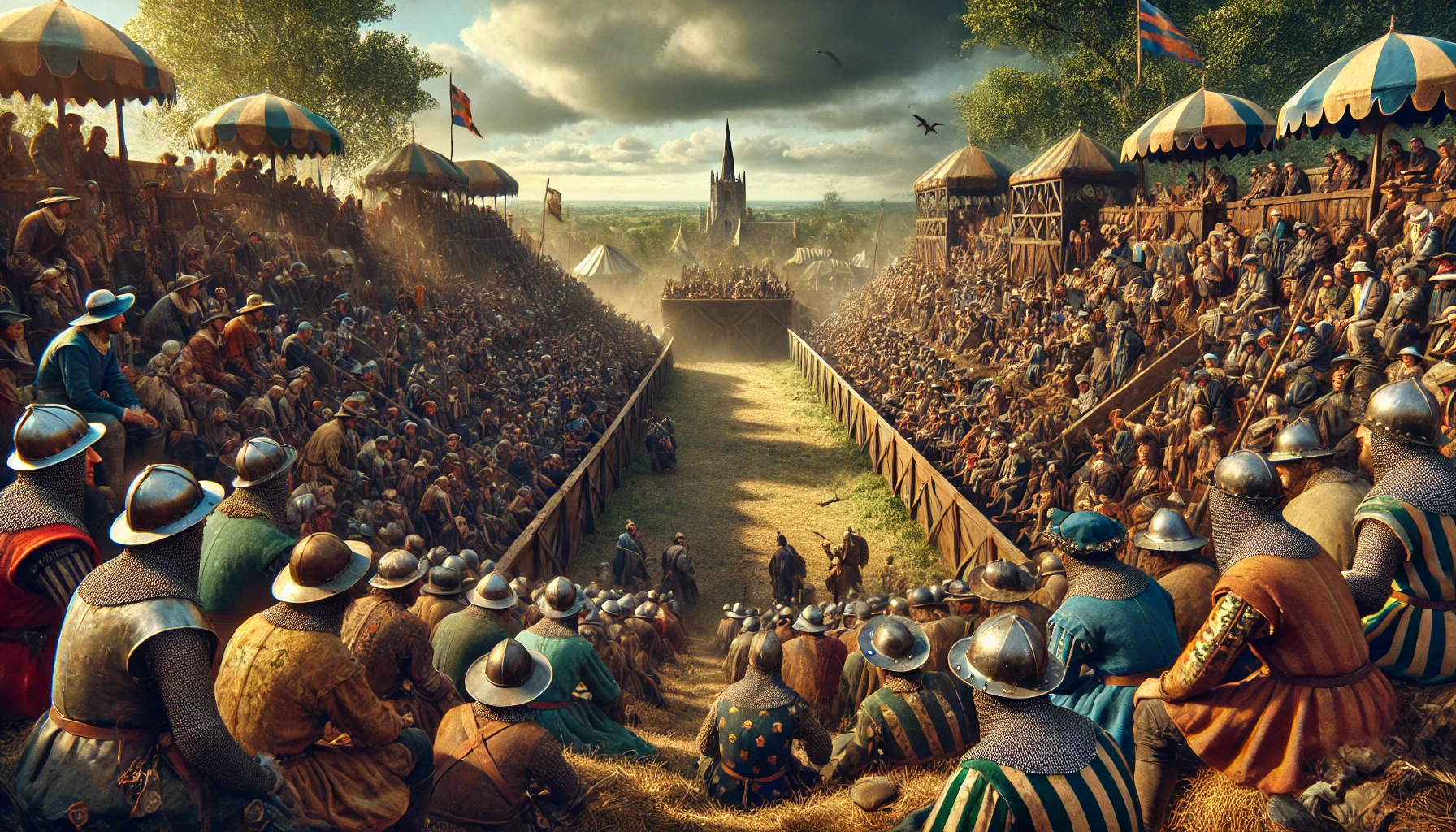“By Saint Dunstan,” said the Friar, “I found him where I sought for better ware! I did step into the cellarage to see what might be rescued there; for though a cup of burnt wine, with spice, be an evening’s drought for an emperor, it were waste, methought, to let so much good liquor be mulled at once; and I had caught up one runlet of sack, and was coming to call more aid among these lazy knaves, who are ever to seek when a good deed is to be done, when I was avised of a strong door.
The central pavilion

as the place of honour, had been assigned to Brian be Bois-Guilbert, whose renown in all games of chivalry, no less than his connexions with the knights who had undertaken this Passage of Arms, had occasioned him to be eagerly received into the company of the challengers, and even adopted as their chief and leader, though he had so recently joined them.
On one side of his tent were pitched those of Reginald Front-de-Bœuf and Richard de Malvoisin, and on the other was the pavilion of Hugh de Grantmesnil, a noble baron in the vicinity, whose ancestor had been Lord High Steward of England in the time of the Conqueror, and his son William Rufus.
Ralph de Vipont

A knight of St John of Jerusalem who had some ancient possessions at a place called Heather, near Ashby-de-la-Zouche, occupied the fifth pavilion. From the entrance into the lists, a gently sloping passage, ten yards in breadth, led up to the platform on which the tents were pitched.
It was strongly secured by a palisade on each side, as was the esplanade in front of the pavilions, and the whole was guarded by men-at-arms.
The northern access to the lists

The northern access to the lists terminated in a similar entrance of thirty feet in breadth, at the extremity of which was a large enclosed space for such knights as might be disposed to enter the lists with the challengers, behind which were placed tents containing refreshments of every kind for their accommodation, with armourers, tarriers, and other attendants, in readiness to give their services wherever they might be necessary.
The exterior of the lists was in part occupied by temporary galleries, spread with tapestry and carpets, and accommodated with cushions for the convenience of those ladies and nobles who were expected to attend the tournament.
A narrow space

betwixt these galleries and the lists, gave accommodation for yeomanry and spectators of a better degree than the mere vulgar, and might be compared to the pit of a theatre. The promiscuous multitude arranged themselves upon large banks of turf prepared for the purpose, which, aided by the natural elevation of the ground, enabled them to overlook the galleries, and obtain a fair view into the lists.
Besides the accommodation which these stations afforded, many hundreds had perched themselves on the branches of the trees which surrounded the meadow; and even the steeple of a country church, at some distance, was crowded with spectators.